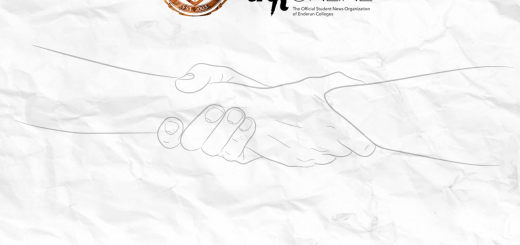Health Services Webinar: How to Boost the Immune System

Sure, medications and personal protective equipment are indispensable in protecting us from diseases, but our immune system is just as crucial. Serving as our first line of defense, keeping our immune system in its ‘tip-top shape’ would be beneficial. As the COVID-19 pandemic continues to wreak havoc, having a well-protected immune system is needed more than ever. It is a vital asset in keeping us and those around us safe.
On February 24th, 2021, the office of health services, Dr. Kay Jimeno, and the guest speaker, a lifestyle medicine specialist, Dr. Jan Dipasupil, discussed and highlighted ways to boost our immune system.
The webinar initially tackled the situation that we are currently facing, COVID-19. This included an overview of what it essentially is, the symptoms, as well as the high-risk individuals who are prone to the disease. One complication that was highlighted in the webinar is ‘Cytokine Storms’ in which the immune system overreacts with the disease, triggering the immune system to target both bad and good cells, leading to organ damage in the process. Although this could be a scary thought, boosting the immune system is one way to prevent this situation from happening. This brings us to the topic of practicing ‘ActiveCare Health’, as a way to enhance our immune system.
ActiveCare encompasses four different factors, with the first factor being discussed, which is nutrition. It should be known by now that eating a well-balanced diet will allow our body to take in as many nutrients to help regulate and support our immune system. Eating foods such as fruits, vegetables, starch and grains, iron-rich foods, and anti-inflammatory foods every day, would allow us to intake the necessary nutrients that we need. Water is also important, as it connects to the second factor, Hydration. Water is important as it acts as a transporter and transports nutrients around the body, acting as a regulator that controls body temperature. Water also detoxifies, allowing us to get rid of waste. Last but not least, it acts as a protector, acting as a lubricant to our joints.
This is to be expected, but as we all know, physical activity plays a big role in keeping our immune system healthy. The third ActiveCare factor requires us to at least do 30 minutes of exercise, 5 days a week. Dr. Jan also brought up ‘SWOT’, his very own physical program. SWOT is composed of ‘Standing’, ‘Walking’, ‘Online exercise’ (having access to different exercise tutorials and routines online), and ‘Taking short breaks’. These are practices that we can do during the pandemic, especially since we are limited as to how much physical work we can do at the moment. Observing healthy habits is the last factor. This encapsulates simple, yet effective actions such as no smoking, having quality sleep, keeping stress levels in check, and keeping a positive connection with those around you as a way to boost immunity through our lifestyle choices.
Additionally, Dr. Jan gave some bonus mental health tips to keep us safe and healthy during the pandemic. One of these is keeping up-to-date with the news and making sure that the news we are acquiring is real and relevant. Another piece of advice that was given is proper time management, such as keeping organized, can have positive effects on your lifestyle.
Some curious individuals asked questions after Dr. Jan finished presenting his slides. One of the most notable were the effects of electromagnetic radiation on the immune system, mental health and the immune response, ketogenic diet, and the effects of excess protein and carbohydrates in our diet.
Ever since we shifted to a new normal, the use of electric devices is on a constant rise. Hence “does electromagnetic radiation affect our immune system” came into question. Dr. Jan responded to the question by saying that no scientific evidence/basis is supporting that the radiation is severely affecting us in some capacity. However, he did mention that if we ever feel uneasy or doubtful in a way that we do not trust electromagnetic radiation, it is suggested that we can limit the usage of these electronic devices. Someone also asked about mental health and how it affects our immunity. According to Dr. Jan, mental health and our immune system are interrelated to one another. This means that positive mental health will result in better immune response, but this also means that a poor mental health state can negatively affect your immune system.
One of the fad diets, the ketogenic diet, also came into question. The ketogenic diet is a dietary practice that focuses on low-carb, high-fat foods. According to Dr. Jan, the ketogenic diet is not ideal for those who want to improve their immune system. Since it focuses on high-fat foods, it is not recommended due to its high-inflammatory properties. Additionally, Dr. Jans has outlined that the ketogenic diet is not beneficial as it usually just gets rid of your ‘water weight’ which would look good in the short-term, but it is not effective in losing weight in the long-term, but you’re simply depriving yourself of the necessary nutrients. Lastly, excess protein and carbohydrates can be bad for your body, especially when you are not using them. During the Q&A, Dr. Jan has explained that if you are not using the excess protein and carbohydrates, they will be converted into fat. The only way to get rid of the excess is through proper and healthy exercise. He recommended high-intensity workouts like HIIT (High Intensity Interval Training) and circuit training.
The webinar was a good opportunity to remind us to take care of ourselves, and our immune system, especially during the pandemic. Most of the advice and practices were actions that we already know. Since the webinar was hosted by those who come from a professional, medical background, it was a great opportunity to check if these practices are done properly and safely. With everything that is happening around us: school, work, interests, or even taking care of loved ones, it is of utmost importance to take care of ourselves as well. Taking good care of oneself can bring a healthy, long life.





